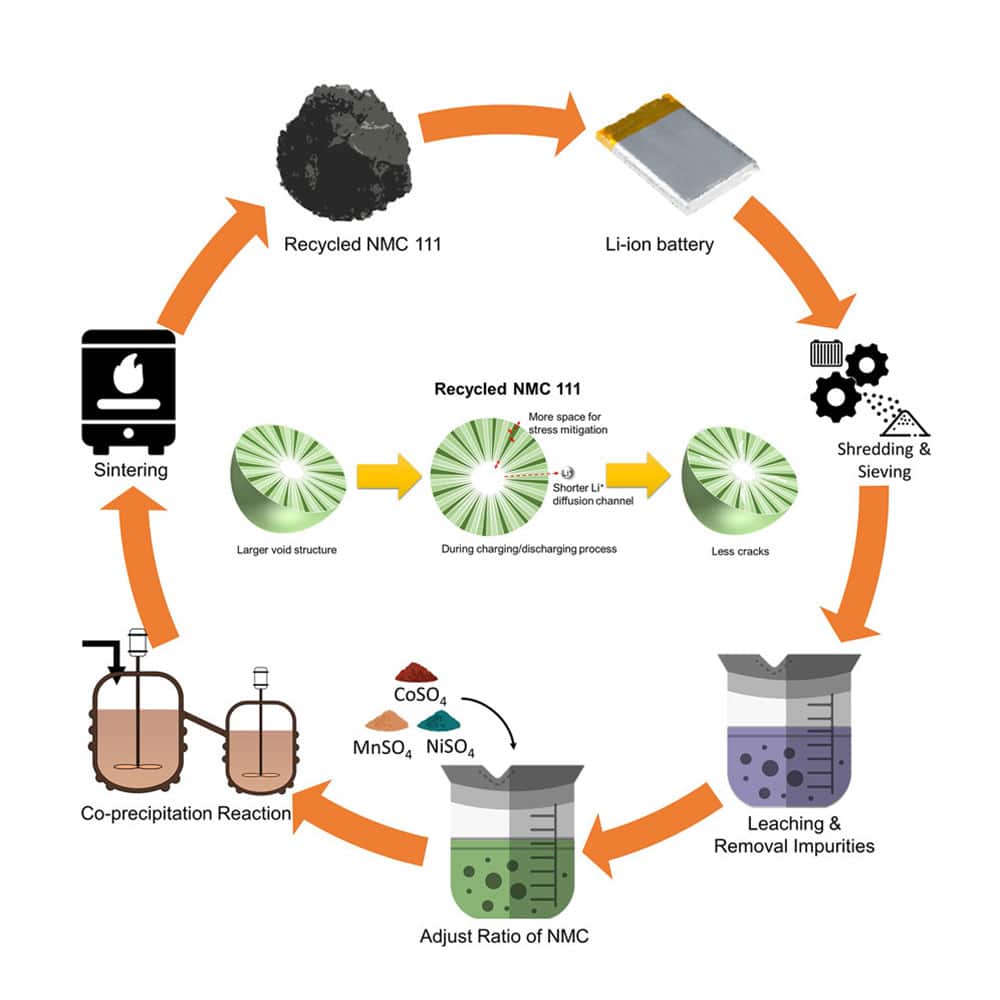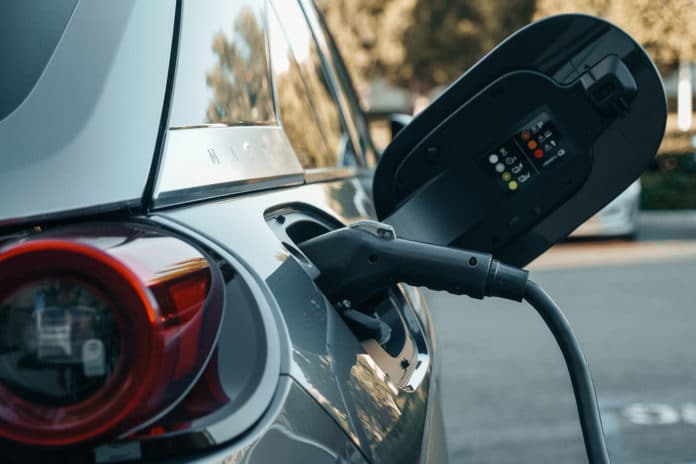Recycling spent lithium-ion batteries plays a significant role in alleviating the shorting of raw materials and environmental problems. However, recycled materials are deemed inferior to commercial materials, preventing the industry from adopting recycled materials in new batteries.
Now, researchers at Worcester Polytechnic Institute (WPI) in Massachusetts have demonstrated that the recycled materials from used lithium-ion batteries can outperform new commercial materials, making the recycled materials a potentially green and profitable resource for battery producers. Led by Yan Wang, professor in the Department of Mechanical and Materials Engineering, the team of researchers used physical tests, imaging, and computer simulations to compare new cathode materials recovered from old electric vehicle batteries through a recycling process, which is being commercialized by Battery Resourcers Inc. of Worcester.
The technology involved shredding batteries and removing the steel cases, aluminum and copper wires, plastics, and pouch materials for recycling. Researchers then dissolved the metals from those battery bits in an acidic solution. They by tweaking the solution’s pH, the team removed impurities such as iron and copper and recovered over 90% of three key metals – nickel, manganese, and cobalt. The recovered metals formed the basis for the team’s cathode material.

In lab tests, the batteries with recycled cathodes outperformed ones made with brand-new commercial materials of the same composition. Specifically, 1 Ah cells with the recycled materials have the best cycle life result reported for recycled materials and enable 4,200 cycles and 11,600 cycles at 80% and 70% capacity retention, which is 33% and 53% better than the state-of-the-art commercial materials.
“As demand grows for lithium-ion batteries, it will be important to recycle materials from used batteries, especially batteries from electric vehicles,” Wang said. “Battery manufacturers want to know that recycled cathode materials are not inferior to new cathode materials. This research shows that recycled materials can electrochemically match or outperform pristine, state-of-the-art cathode materials from tier 1 suppliers.”
From experimental and modeling results, the unique microstructure of recycled materials enables superior electrochemical performance. The recycled material outperforms commercially available equivalent, providing a green and sustainable solution for spent lithium-ion batteries.
Meanwhile, the Battery Resourcers is already selling their recycled materials to battery manufacturers on a small scale. The company plans to open its first commercial plant, which will go into operation at the beginning of 2022 and be able to process up to 10,000 tons of batteries per year. In September, they raised $70 million, with which they plan to launch two more facilities in Europe by the end of 2022.
